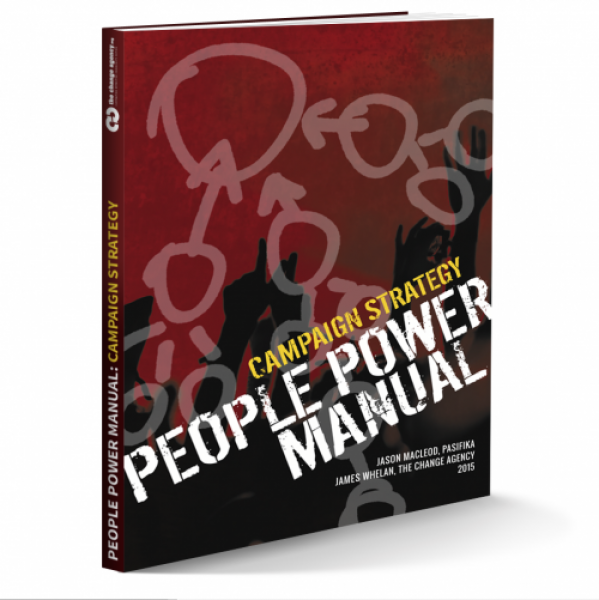
Welcome to the first instalment of the People Power Manual. The manual has been compiled as
a resource for activist educators (1). It is a collection of participatory and experiential processes
and handouts organised around the themes of educating the educator, strategy, civil resistance,
community organising, working with groups and resilience in the face of repression. This guide
is focused around one of those themes: strategy. The purpose of the People Power Manual is to
support facilitators/educators (2) working to assist local action groups and social movements win
environmental and social justice goals. The manual is published electronically as a series of
instalments. Hard copies of each chapter are also available. Once completed, the full manual will be
available in print and online. All funds generated by the sale of the manual go back into supporting
grassroots social movement education projects.
The manual has been written primarily for educators, trainers and facilitators who are looking for
processes to support them in their activist education work. This instalment is not something you
would read cover to cover. We imagine most people will dip in and out of these pages. As a result, the
guide is not content driven. Rather, the editors assume that you already understand the concepts
and theory that the processes and handouts are based on. For those interested in reading more
we recommend the references contained in the handouts and in the section on resources as good
starting points.
Because we recognise that each group and each context is unique we had mixed feelings about
including ‘off-the-shelf’ outlines for generic workshops in this guide. We believe that education is
much more than following instructions for a particular process. The process of becoming an educator,
facilitator or trainer is a long one, as much craft and art as it is science. We encourage ourselves and
our peers to continually hone our skills through practice and reflection. This instalment of the People
Power Manual is not a substitute for experience and the skill of listening, creating a sense of safety
and trust in a group, responding to the needs of participants, and creatively adapting and designing
new processes in situ. Having said all that, the hope is that the manual will be a useful guide to the
transformative work that education and dialogue can be.
Although the manual contains a number of useful processes that trainers or facilitators can use
including processes to explore the relationship between education and change, it is not a cookbook
for putting together a workshop. Instead, we are presenting a menu of options. Our view of activist
education is not about ‘experts’ standing up in front of a group and delivering knowledge, skills and
information. This guide will not equip anyone to do that.
The processes we describe here may have to be adapted to the context you are working in and the
needs of the group. Not all of the processes will appeal to all groups at all times. When the editors
of this guide use the processes and handouts contained in this chapter – which we do regularly –
we develop a workshop plan based on a dialogue with the group we’re working with. We seek to
understand participants’ own contexts and their specific needs before we design a workshop. As a
result each workshop schedule is different. Even then, we regularly depart from our workshop plan.
We might vary the order, process and type of session facilitated depending on our understanding
of where the group is at. In the midst of a training or education session we continue to pay close
attention to the group and alter our approach accordingly, depending on what we perceive the group
needs or wants to work on. In this way each workshop is unique, evolving out of a dialogue between
participants and facilitators.
However, we also recognise that some newer facilitators may appreciate workshop schedules. Even
as experienced educators we value having these as a starting point to plan workshops. For this
reason we have also included sample workshop schedules. We encourage you to adapt these and
to design your own.
1 The authors define activist education as education that is conducted by and with activists, is openly interested in the processes of change-making, and utilises participatory and experiential methods that affect justice-oriented social change.
2 We use the words educator and facilitator interchangeably.
- Inicieu sessió per a enviar comentaris
